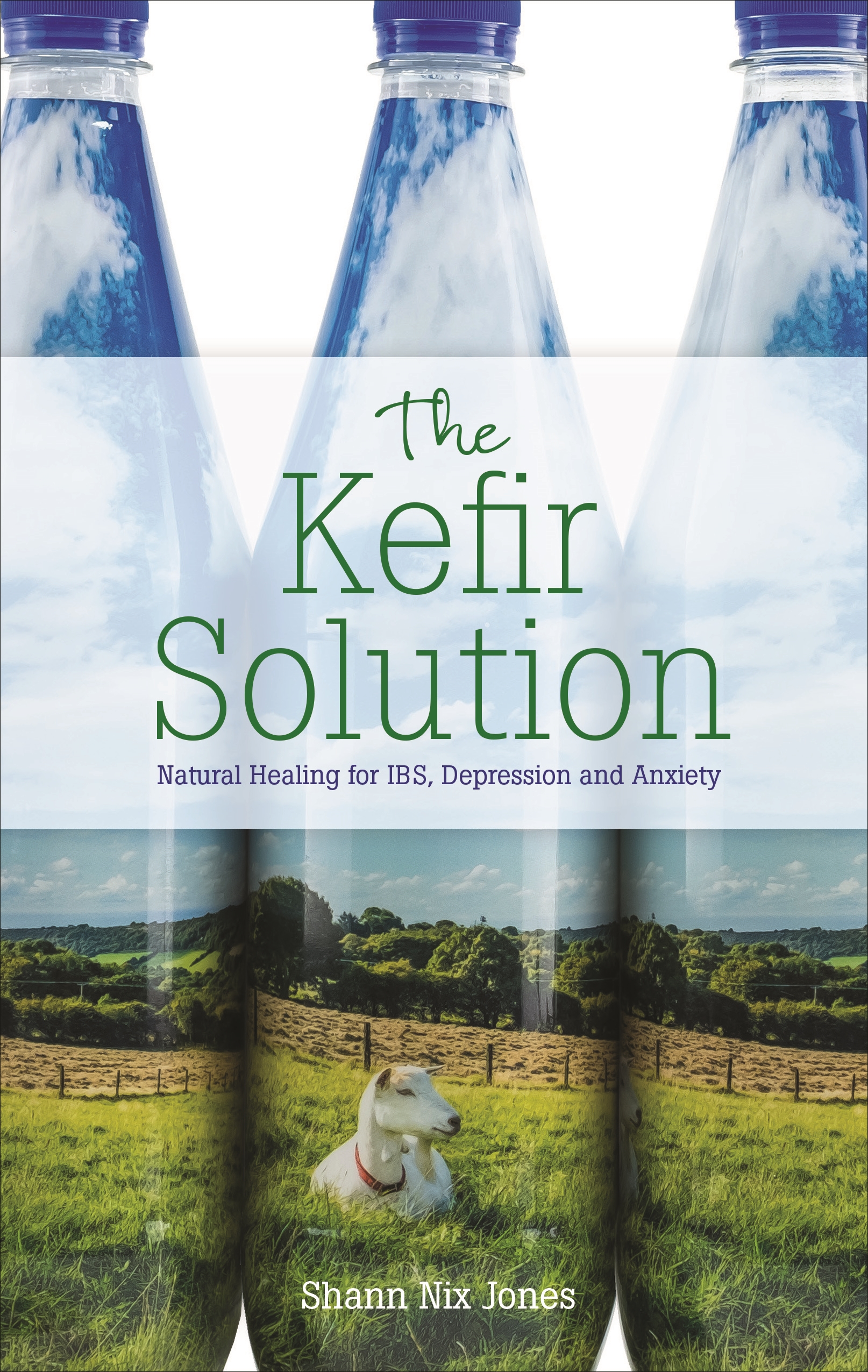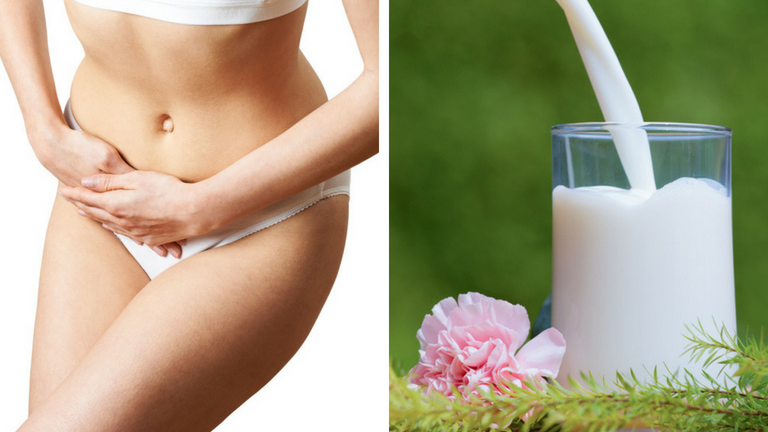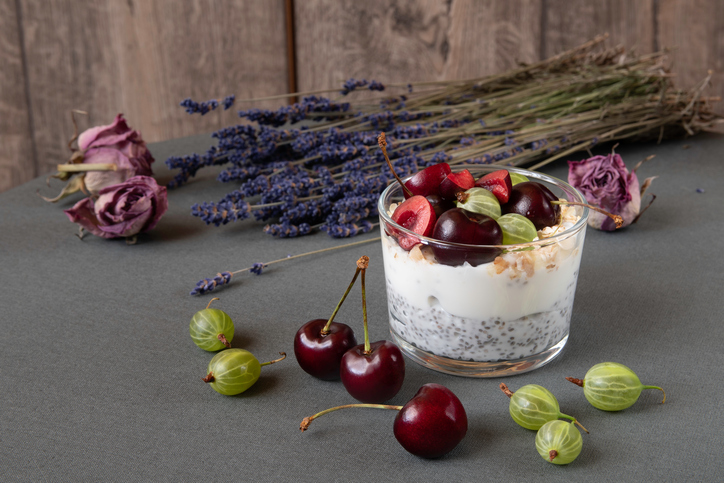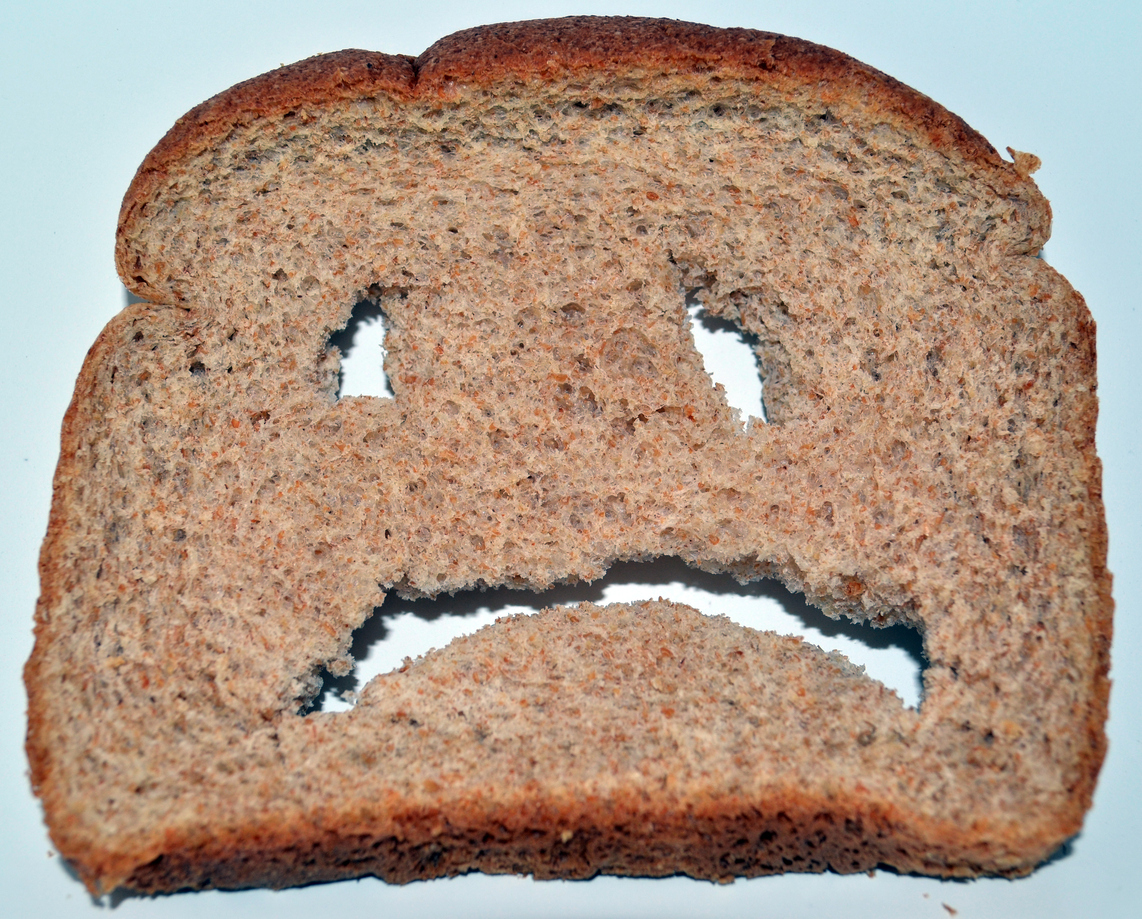New research proves the ‘psychobiotic’ mental health benefits of kefir, an ancient fermented drink used traditionally in Russia, from helping IBS to depression, says Shann Nix Jones
In the past year, 86 per cent percent of all British adults suffered from some sort of gastrointestinal problem or ailment.
Globally, IBS is the most common form of GI disorder in the industrialised world. If you are one of the many who suffer from IBS, you know that science has provided very little help to IBS sufferers – until now.
Cause of IBS uncovered
New research has uncovered strong evidence that IBS, along with the anxiety and depression that frequently accompany it, are all associated with an imbalance of bacteria in the gut. A landmark study by Cedars-Sinai Medical Center in the US used cultures from the small intestine to connect bacteria to the cause of the disorder.
Mark Pimentel, one of the authors of the study, said: ‘While we found compelling evidence in the past that bacterial overgrowth is a contributing cause of IBS, making this link through bacterial cultures is the gold standard of diagnosis. This clear evidence of the role bacteria play in the condition underscores our clinical trial findings… Bacteria are key contributors to the cause of IBS.’
In 2017, researchers at Canada’s McMaster University used faecal transplants to transfer microbiota from IBS patients into germ-free mice, and they found that those mice went on to develop IBS symptoms and anxiety-like behaviour.
It was already known that patients with IBS have certain kinds of bugs in their gut, so the gut bug-IBS connection has been established.
But the McMaster study showed that it’s possible to start out with the bugs, and use them to create both the gut-related symptoms of IBS and the co-morbid aspects of depression and anxiety.
The science behind kefir
Discovering the cause of IBS opened the way for probiotic treatments that can help resolve it.
One of the most effective is a fermented milk product called ‘kefir,’ a Turkish word meaning ‘good feeling.’
Kefir originated in the Black Caucasus Mountains of Russia, where tribesmen were known for living extremely long and healthy lives. Inhabitants of the region traditionally made kefir in a goatskin bag, which guests would kick upon entering or leaving, to mix the kefir.
Kefir grains are actually a living, synergistic combination of yeasts and bacteria that alter the gut in two ways: by adding beneficial species of bacteria, and also suppressing pathogens (disease-causing organisms). Kefir grains cannot be manufactured, and grains only grow from other grains.
The mountain tribesmen jealously guarded these symbols of health, passing them from family to family and protecting them from outsiders for many hundreds of years.
Marco Polo visited the region and wrote about kefir, but was never allowed to take grains away with him.
In 1907, the Russian-born Nobel Prize co-recipient Élie Metchikoff suggested the possibility of colonizing the gut with beneficial flora after sourcing some kefir. Metchikoff is thought to have first introduced the concept of a ‘probiotic’. And for this, he became known as the ‘Father of Natural Immunity’”
In the 1970s, the Russian government finally sent an armed party into the Caucasus Mountains near Turkey to bring out some of the live kefir grains used to make the fermented drink.
This mission was successful, and today kefir is a billion euro industry in Russia and Eastern Europe. Kefir has since slowly been creeping across the global landscape, to the rest of Europe, Japan, the United States by early 21st century. In Chile, where it is known as ‘yogur de pajaritos’ (little birds’ yogurt), kefir has been regularly consumed for over a century.
At the end of the four weeks, the biggest change in gut bacteria was seen in the group that had taken kefir.
In January 2017 the first mainstream UK study was performed to determine which probiotic food has the greatest impact on the bugs inside the human gut.
The study was conducted by Dr Michael Mosley, presenter of the BBC TV show Trust Me I’m a Doctor, along with NHS Highland and 30 volunteers and scientists around the country.
At the end of the four weeks, the biggest change in gut bacteria was seen in the group that had taken kefir.
This study confirmed that the non-transient bacteria in kefir do survive the human digestive process – despite its strong acid that kills off dangerous bacteria in our food – and reaches the gut to colonize it and suppress pathogens (disease-causing bugs).
The American College of Gastroenterology performed a comprehensive literature review on the topic, and found that probiotics like kefir were both safe and effective in improving symptoms and normalizing bowel movement frequency in patients suffering from constipation or diarrhoea related to IBS.
Can kefir help with depression and anxiety?
Today kefir is also poised to become a major player in a new frontier in neuroscience because of its actions as a ‘psychobiotic’. This is a new term for a combination of live organisms that, when ingested in adequate amounts, produce mental health benefits.
While it’s been known for over a century that bacteria can have positive effects on our physical health, it’s only in the last 10–15 years that studies have proven there’s a connection between the gut, the bacteria in the gut, and the brain.
In mice, enhanced immune function, better reactions to stress, and even learning and memory advantages have been attributed to adding the right strain of bacteria to the gut. These bacteria work on something called the ‘gut–brain connection.’
‘Those studies give us confidence that gut bacteria are playing a causal role in very important biological processes, which we can then hope to exploit with psychobiotics,’ says Philip Burnet, an associate professor of psychiatry at the UK’s University of Oxford.
What kind of kefir is best?
When sourcing kefir to help with IBS, depression or anxiety, look for a live, active, traditional-style kefir, rather than a supermarket probiotic, which may be pasteurised after production.
Choose kefir that is made with real kefir grains. If it doesn’t say on the label that it is made with real grains, it probably isn’t.
Goat’s milk is the best base for kefir, as the A1 casein protein in cow’s milk is allergenic and can cause inflammation inside the gut.
Avoid flavoured or sweetened kefir, as sugar and sweeteners can further damage your microbiome. If you wish to flavour your kefir at home, use 100 per cent pure stevia and fruit, blending and consuming immediately to avoid degradation of the probiotics.
Kefir suitable for use to deal with IBS, depression and anxiety can be sourced from chucklinggoat.co.uk.
The Kefir Solution case studies
Mood and IBS: Caroline Debnam, 36, Hertfordshire, UK
‘I’ve had IBS for about 13 years. It started with the stress I experienced when my father passed away. I wasn’t able to eat bread or pasta because my stomach would become really bloated. I experienced anxiety and depression as well, I was very upset and low.
‘I tried all the different tablets for IBS that the doctor gave me – Buscopan and peppermint oil, etc – but they didn’t work. Then I tried some of their kefir and lo and behold, it worked!
‘On the first course, I became less uncomfortable. By the middle of the second course, the IBS had gone. I took a third course, and it didn’t come back. I took four courses altogether, and the IBS is now cured. It’s brilliant.
‘I certainly noticed a difference in my mood and energy level, I felt a lot better. I’m not having panic attacks anymore. I would recommend kefir 100 per cent. I was amazed – I had no stomach bloating and no cramps, just complete comfort and a normal tummy! Fantastic! I’m so grateful for my new lease of life!’
IBS: Pauline Potter, 62, Retired Head Teacher, West Yorkshire
‘I suffered from IBS for ten years, starting in 2008. It began during an awful period of stress at work. I had taken on a challenging school, and one particular parent went for me, posting threats on Facebook and so on. It was scary – eventually the police got involved and I had to move house. I also developed severe rosacea which needed to be covered with makeup every day. I found it upsetting – the children would say, “Miss, what’s wrong with your face?”
‘The IBS was quite severe – I suffered bloating, and was unable to travel some days. I had to leave meetings in agony to get to the loo – even when I hadn’t eaten anything, I would start to sweat and be in extreme pain. Sometimes I would be in the supermarket and have to leave my cart. It was embarrassing. I took six months off work, and never went back. When I finally retired in 2011, I thought I had the flu.The doctor diagnosed me with depression.
I started to take kefir on Mar 14, 2017. I didn’t expect a quick fix, but half-way through my first lot, I said to (my husband?) Nigel, “Hang on, I haven’t had to run to the loo!” After a month it was amazing. Half-way through my second batch of kefir, I had no IBS and my face returned to a normal colour. I started to feel better – I was not in pain any more. I can only attribute the improvements to the kefir – nothing else had changed.
‘I was also able to come off my antidepressants. You never know if you’re depressed or just feeling rubbish because of the awful episodes, the pain and sweating. And you’re bound to be happier when that’s not happening any more! In general I just felt my whole mood lifting, I didn’t have that horrible thing hanging over me anymore, thank goodness. I noticed my mood was better in general.
‘Every six months I think it may be coming back,and I know I need more kefir. I quite like the taste now. Everyone I meet who has IBS, I tell them you need to get some. I think a lot of people have all sorts of things wrong with them because of modern living and stress. Since that time, I’ve moved twice, and I thought I was going to have an IBS flare-up because of the stress. But I didn’t!
‘All these chemicals aren’t doing us any favours. The kefir is magical. It’s a natural thing – and that’s the way we all need to be going.’
Excerpted from the new book The Kefir Solution: Natural Healing for IBS, Anxiety and Depression
About the author

Credit: extracted from ‘The Kefir Solution’ by Shann Nix Jones, available from Amazon
More Healthista content:
5 symptoms of IBS and the natural fixes that help
WHAT ARE PREBIOTICS AND PROBIOTICS?
Got trapped wind? This is what helped one writer overcome it
Enter our latest competition for your chance to win a 4-night spa detox worth £1750
WIN a 4-night spa detox worth £1750
Like this article? Sign up to our newsletter to get more articles like this delivered straight to your inbox.

























































